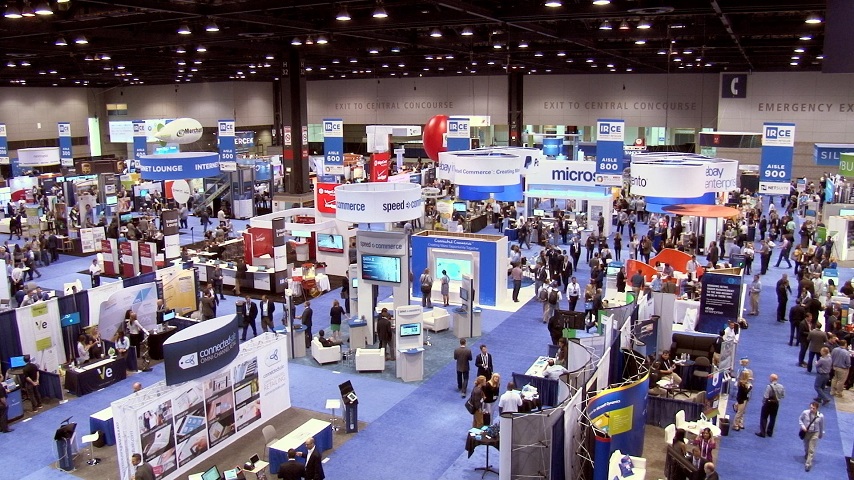B2B (business-to-business) events play a crucial role in helping organizations build relationships, generate leads, and drive sales. Whether it’s a trade show, conference, or networking event, an effective marketing strategy is essential to attract the right audience and ensure success. In this blog, we’ll explore three essential B2B event marketing tips that will help organizers create impactful events that deliver measurable results.
Tip 1: Define a Clear Audience Persona and Tailor Your Messaging
In B2B marketing, understanding your target audience is critical. Unlike B2C (business-to-consumer) events, B2B events often attract decision-makers, industry experts, and business leaders. To create an event that resonates with this audience, you need to define who they are and what they value.
Develop Detailed Audience Personas
Start by creating detailed audience personas that reflect the key segments you’re targeting. Consider factors such as:
- Industry: Are you targeting professionals in tech, finance, healthcare, or another sector?
- Job Titles and Roles: Is your event for CEOs, marketing managers, IT professionals, or entrepreneurs?
- Pain Points: What challenges are they looking to solve? Are they seeking knowledge, networking opportunities, or business deals?
For example, if you’re organizing a tech summit for CIOs, your messaging should focus on innovation, future trends, and solutions for enterprise challenges.
Craft Messaging That Aligns With Business Goals
Once you’ve identified your audience personas, tailor your event messaging to address their specific needs and objectives. Use clear, professional language that highlights the value your event offers, such as:
- Opportunities to learn from industry thought leaders.
- Networking with potential clients and partners.
- Gaining actionable insights and strategies.
Every touchpoint, from your website and social media posts to email campaigns, should reflect this tailored messaging.
Use Account-Based Marketing (ABM) for High-Value Targets
ABM is a highly targeted B2B marketing approach that focuses on specific accounts or companies you want to attract to your event. Create personalized invitations or exclusive offers for key decision-makers at your target companies. This personalized approach can increase the likelihood of attendance by showing potential attendees that the event is designed with their needs in mind.
Tip 2: Leverage Multi-Touchpoint Campaigns for Lead Generation
In B2B marketing, generating leads is one of the top priorities. To achieve this, your event marketing strategy should include multi-touchpoint campaigns that nurture prospects at different stages of the buyer’s journey.
Build an Integrated Marketing Funnel
Your marketing efforts should work together as part of a cohesive funnel. Here’s how you can align various channels to drive lead generation:
- Awareness Stage: Use paid ads, social media campaigns, and PR efforts to create awareness about your event.
- Consideration Stage: Share content like speaker previews, agenda highlights, and case studies to show potential attendees the event’s value.
- Decision Stage: Provide clear calls-to-action (CTAs) such as “Register Now” or “Book Your Ticket” on all promotional materials.
Each channel—whether it’s email, social media, or direct outreach—should guide your audience toward a specific goal, like registering for the event or signing up for a webinar.
Automate Email Campaigns for Lead Nurturing
Email marketing remains one of the most effective tools for B2B event promotion. Automate your email campaigns to nurture leads by sending:
- Initial Invitations: Highlight key details about the event and its benefits.
- Follow-Ups: Remind recipients about registration deadlines and share updates.
- Exclusive Content: Provide early access to whitepapers, reports, or event-related resources to keep prospects engaged.
Use segmentation to tailor emails based on the recipient’s role, company, or level of interest.
Use Lead Magnets to Attract Registrations
Offer lead magnets that provide value upfront, such as:
- Free guides or eBooks related to your event’s theme.
- Access to exclusive webinars or online discussions.
- Early-bird discounts or VIP passes.
These incentives can encourage potential attendees to engage with your event, providing you with their contact information for further follow-ups.
Tip 3: Focus on Data-Driven Decision Making
Data is a powerful tool in B2B event marketing. By tracking and analyzing key metrics, you can optimize your campaigns, improve ROI, and ensure your event meets its objectives.
Monitor Metrics Across All Channels
Track the performance of your marketing efforts using tools like Google Analytics, social media insights, and email marketing software. Key metrics to monitor include:
- Website Traffic: Analyze where your visitors are coming from (e.g., organic search, paid ads, social media) to understand which channels are driving engagement.
- Conversion Rates: Measure how many website visitors register for your event. If your conversion rate is low, consider optimizing your landing page or CTAs.
- Email Open and Click Rates: Assess which email campaigns are performing well and which need adjustments.
Use Event Tech for Real-Time Insights
Event technology, such as registration platforms and mobile event apps, can provide real-time data about attendee behavior and preferences. For example:
- Track registration trends to identify which promotions are most effective.
- Use session attendance data to gauge interest in specific topics.
- Analyze networking app usage to understand how attendees are connecting.
These insights can help you refine your marketing efforts and make data-driven adjustments for future events.
Post-Event Surveys and Feedback
After the event, gather feedback through surveys to understand what worked and what didn’t. Ask attendees questions like:
- How did you hear about the event?
- What made you decide to attend?
- What did you find most valuable about the event?
Use this feedback to improve future B2B event marketing strategies.
Putting It All Together
Promoting a B2B event requires a strategic approach that balances audience understanding, multi-channel marketing, and data-driven insights. Here’s a quick recap of the three tips:
- Define a Clear Audience Persona and Tailor Your Messaging: Understand your target audience, create personalized messaging, and use account-based marketing for high-value targets.
- Leverage Multi-Touchpoint Campaigns for Lead Generation: Build an integrated marketing funnel, automate email campaigns, and offer lead magnets to attract registrations.
- Focus on Data-Driven Decision Making: Track key metrics, leverage event tech, and gather post-event feedback to optimize your strategies.
By implementing these tips, you can create a marketing strategy that not only drives attendance but also enhances engagement and ensures your event delivers tangible results for both attendees and organizers.

